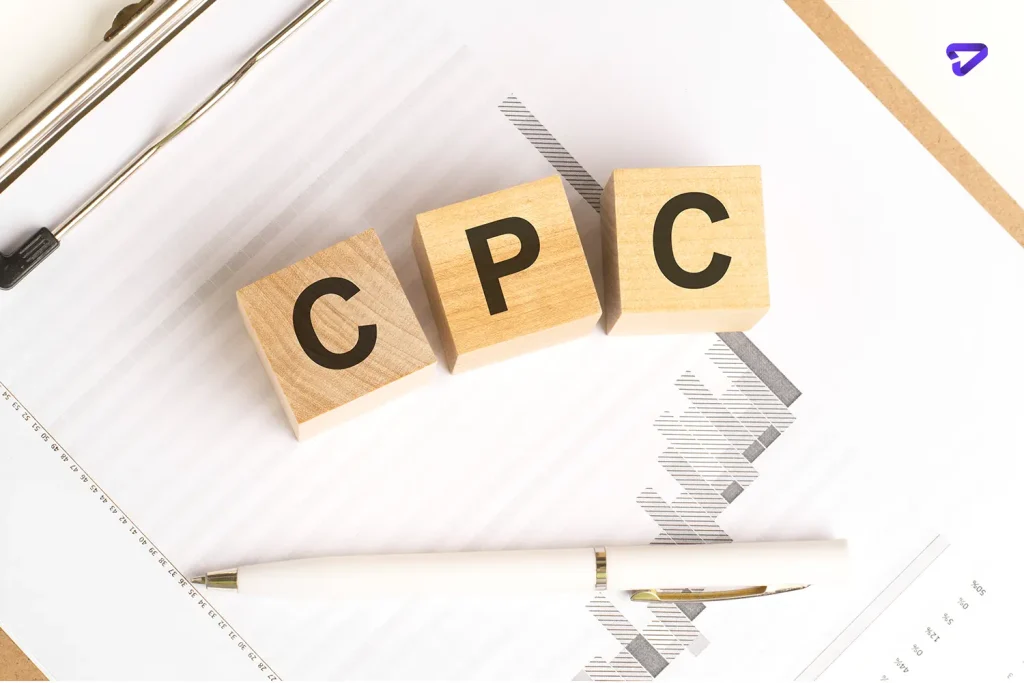
10 Ways to Lower Your Google Ads CPC & Boost Profitability
10 Ways to Lower Your Google Ads CPC: Discover effective strategies to optimize your ad spend, enhance quality scores, and achieve better campaign results.
Cost per click (CPC), a crucial metric for measuring the performance and profitability of online advertising campaigns, is also known as Google Ads CPC. The high CPC can easily gobble your budget and cut your ROI.
Nonetheless, there are proven ways to cut the CPC for an advertisement and increase its profitability.
Implementing Google Ads Optimization techniques is crucial for lowering your CPC, as it helps refine ad targeting, improve Quality Scores, and maximize the efficiency of your budget.
This article will discuss ten ways to optimize your campaigns, enhance ad relevance, and improve your Quality Score, all of which, in the end, will help reduce CPC and improve results.
Google Ads CPC: What is it?
Cost Per Click (CPC) of Google Ads means the sum paid by an advertiser for each click on an ad within Google Ads Platform.
The cost per click (CPC) is determined through a bidding system where advertisers bid for ads to appear on websites within Google Display Network.
The actual cost depends on competition, ad relevance, and quality score.
Advertisers indicate their maximum bid, the highest payment they wish to pay for a click.
Ads placed on Google are determined by the Ad Rank algorithm, which considers bid, ad quality, and other factors.
CPC, payable only if a user clicks on an advertiser’s ad, therefore becomes a critical measure of the success and cost-effectiveness of a Google Ads campaign.
Advertisers should optimize their campaigns to ensure that bid strategy does not outperform ad performance.

5 Factors That Influence Your Google Ads CPC
These five factors can determine how much you pay per click:
1-CPC — A Quality Score of less than 5/10 can quadruple your CPC.
2-Keyword bids — When the bid is set at the campaign or ad group level, the keyword level bid will override the bid limit.
3-This cost is based on the level of competition. There are lots of competitors for the same keyword.
4-A smart bidding approach, such as targeting ROAS or maximizing conversions, is one of the ways Google can bid on expensive keywords.
5-Campaign setup — Device targeting, location, and ad scheduling influence your CPC.
10 Strategies to Lower Google Ads CPC
Want to reduce Google Ads’ paid search CPC?
These ten approaches will keep your ad spend costs down and ensure you get the highest efficiency.
1-Optimizing Quality Score
Improve your Quality Score, which is a good way to reduce your Google Ads CPC.
This involves a strategy-centric approach that maximizes click-through rates, ensures the highest possible ad relevance, and optimizes the overall landing page experience.
Achieving a Quality Score of nine or ten, and thus lowering CPC, may result in substantial cost savings for your advertising activities.
2-Strategic Keyword Selection
The selection of keywords to pursue in pursuing cost-effective advertising becomes very vital.
Although, in the end, the goal is to lower the CPC, it is worth thinking about slightly increased spending in the keywords that are significant for your business yours.
A careful assessment of aspects like search volumes, potential CPC, and competitive landscape is carried out with a long-term goal mindset rather than short-term savings.
3-Exploring Long-Tail Keywords:
Go experimental with your strategy by including long-tail keywords. These more nuanced and specific keywords may have low search volume, but the value they provide due to the specificity of the intent behind the user search can be significant.
Using longer keyword phrases, you could discover cheap, high-impact variations for your big business objectives.
4-Effective Use of Negative Keywords:
It is essential to employ an active management approach to your negative keyword list to avoid showing your ads in searches unrelated to your business.
Check the Search Terms report now and then, and remove non-relevant terms as soon as possible.
This careful process enhances ad relevance and acts as a great tool for cutting down on money wastage.
5-Cautious Approach to Broad Match:
Broad match can be very inviting for its vast size, but a strategic way of going about it is required to avoid additional expenses.
Exact match keywords ensure precision in targeting, but strategically using broad matches can result in query mining and discovery of related keywords.
To strike a balance between reach and financial prudence, monitoring and controlling spending on broad match keywords is imperative.
6-Strategic Ad Group Organization:
To help ensure that your CPC is properly controlled, you should organize your ad groups accordingly.
Using different bid prices (i.e., CPC) for separate ad groups consisting of different products or services based on their inherent value.
The bids are strategically calibrated to the revenue generated by different ad groups, ensuring optimization opportunities based on product or service value.
7-Leveraging Ad Extensions:
Make your ads visible by using several extensions. Google reports that the click-through rate for ads with four site link extensions is 20% higher.
This increased visibility not only boosts QS but also can be a catalyst for CPC reductions.
8-Aligning Landing Pages with Search Intent:
Aligning your landing pages with the search intent of selected keywords is an important aspect.
Separating informational and transactional queries can prevent money from being squandered on those individuals who probably will not discover what they seek.
This helps to create a more efficient use of your advertising budget.
9-Utilizing Enhanced CPC or Lower Bids:
Go for Enhanced or CPC or lower your bids deliberately to control your ad cost.
Your average CPC will be automatically adjusted to ensure it stays below the desired maximum CPC in Enhanced CPC.
This is an extremely flexible strategy that facilitates adaptive cost management.
CPC is carefully lowered in each ad group or keyword with a strategic approach.
Both approaches offer detailed control over budgets, which allows different campaign goals to be addressed.
Adopt a strategy that resonates with your objectives to be responsive and achieve optimal results in Google Ads.
Effective Google Ads Audience Targeting allows you to reach the right users based on their interests, behaviors, and demographics, which can significantly decrease your CPC by reducing wasted ad spend on uninterested audiences.
10-Performance-Driven Spending Adjustments:
Carry out a detailed analysis of performance-driven spending patterns to tap savings potential.
Identify peak-performing times and adjust budgets strategically, allocating higher budgets for periods of heightened performance and less budget during less fruitful intervals.
Such an approach to managing CPC helps balance the advertising campaign’s effectiveness.
for more information please read google help.

Conclusion
Effective Google Ads Optimization requires understanding and implementing various bidding strategies to ensure your ads achieve maximum visibility and ROI within your budget.
In this context, you need to reduce your Cost Per Click (CPC) to maximize the profitability of your Google Ads.
This article has provided ten ways to succeed in achieving this goal.
Adopting these techniques can lead to the success of your ads and make your business visible.
Go the extra mile through the use of Google Local Service Ads. These ads are crafted to reach local consumers.
They can be quite beneficial in making your campaigns profitable. Harness the power of this effective advertising tool today and watch the positive impact on your business.
Danabak Agency specializes in Google Ads in Charlotte, offering tailored strategies to maximize your ad performance and achieve optimal results.








